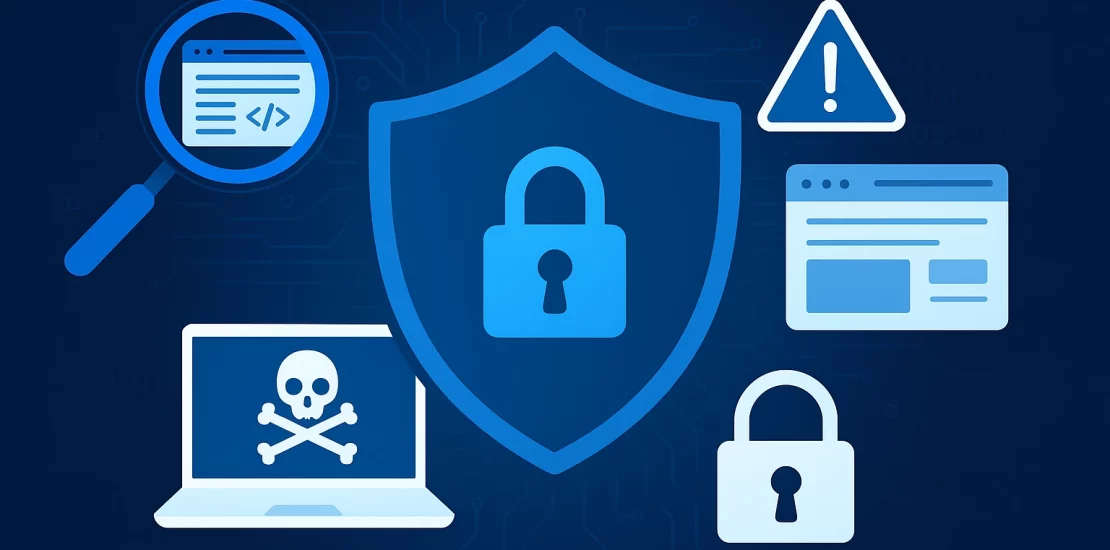Penetration Testing and Vulnerability Assessments Explained
- November 21, 2025
- Posted by: Gradeon
- Category: Cyber Security

Every organisation that manages digital systems, online platforms, customer information or internal business data faces cyber risk. Cyber criminals are using increasingly sophisticated methods to compromise networks and exploit security weaknesses. This is why businesses across the UK are investing in cybersecurity consulting, regular vulnerability assessments and professional penetration testing. These services give companies a clear understanding of how secure their systems really are and what needs to be improved to defend against modern threats.
What is a Vulnerability Assessment?
A vulnerability assessment is a structured process that identifies security weaknesses in systems, networks, applications and digital infrastructure. It is an essential service offered by cybersecurity consultancy teams and gives detailed insights into known vulnerabilities before attackers can exploit them.
During the assessment, automated tools and manual checks scan the system for misconfigurations, outdated software, weak passwords, exposed data, missing security patches and other issues that could be used to gain unauthorised access. This approach allows cybersecurity consultants to detect security flaws without performing any disruptive or aggressive simulations.
A vulnerability assessment is ideal for organisations that want clarity about their security posture but are not yet ready for deeper penetration testing. It is often the first step in any professional cyber security consultancy service and forms the foundation of an ongoing security improvement programme.
Benefits of a Vulnerability Assessment
Working with cybersecurity consultants London businesses trust provides several advantages. These include:
- Early detection of weaknesses before attackers discover them
- Detailed security reporting with remediation priorities
- Cost effective improvement planning
- Better alignment with compliance standards
- Improved visibility across digital assets
Most importantly, a vulnerability assessment improves cyber resilience without causing downtime or operational disruption.
What is Penetration Testing?
Penetration testing, often referred to as ethical hacking, takes security evaluation to the next level. Instead of simply identifying weaknesses, penetration testers attempt to exploit them just as a real attacker would. This controlled approach shows how much damage an experienced cyber criminal could cause if they targeted the organisation.
Penetration testing is a key service provided by cybersecurity consulting firms. It requires manual techniques, creative problem solving and advanced technical knowledge. Tests are performed by trained security professionals who understand how hackers think, behave and operate.
A typical penetration test involves attempts to bypass security controls, gain unauthorised access, escalate privileges or extract sensitive information. Testers then document their findings, prove the vulnerabilities with evidence and advise on how to fix them.
Types of Penetration Testing
Professional cybersecurity consultancy services may offer several forms of penetration testing including:
Network Penetration Testing
Focuses on internal and external networks, firewalls, routers, servers and communication paths.
Web Application Testing
Targets web platforms, websites, online portals and APIs to detect input validation issues, session flaws, business logic weaknesses and similar risks.
Wireless Testing
Evaluates Wi-Fi networks, encryption strength, rogue access points and wireless access control.
Social Engineering Testing
Simulates phishing, impersonation and psychological manipulation attacks to test human security awareness.
Mobile App Testing
Evaluates the security of iOS and Android applications including data storage, API use and device-level protection.
Each test provides valuable insight into how well the organisation can detect, prevent and respond to real-world attacks.
How Penetration Testing and Vulnerability Assessments Work Together
Many businesses assume that penetration testing and vulnerability assessments serve the same purpose, but they perform different roles. A vulnerability assessment identifies weaknesses, while penetration testing demonstrates what an attacker could do using those weaknesses.
In a full cybersecurity consulting approach, organisations often begin with a vulnerability assessment and then move toward penetration testing once basic weaknesses have been resolved. This ensures that penetration testing focuses on realistic threats and provides valuable insights rather than flagging obvious problems that could have been fixed earlier.
Why Organisations Need These Security Services
Modern businesses operate in a constantly evolving digital environment. Cyber criminals no longer rely only on simple malware or predictable attacks. They use advanced intrusion techniques, phishing campaigns, ransomware, supply chain breaches and persistent targeted attacks.
By working with cybersecurity consultants London companies gain:
- Independent professional evaluation of security controls
- Regular testing that matches current threat trends
- Support in achieving governance and compliance
- Clear documentation to guide executive decision making
- Ongoing cyber security consultancy that strengthens defence over time
Without regular testing, businesses may be unaware of hidden weaknesses until it is too late.
Supporting Compliance and Regulatory Standards
Many industries are now required to demonstrate strong security controls to meet compliance obligations. Penetration testing and vulnerability assessments contribute to compliance with standards such as ISO 27001, GDPR, PCI DSS, Cyber Essentials and other frameworks. Reports provided by cybersecurity consultancy teams act as evidence during audits and help organisations improve their governance maturity.
Choosing the Right Cybersecurity Partner
Because security testing involves deep access to business systems, it is important to choose a trusted cybersecurity consulting provider. Look for firms with experienced cybersecurity consultants, recognised technical qualifications, established methodology and transparent reporting.
Working with a dedicated cyber security consultancy ensures that the business receives guidance that is independent, expert and aligned to long term strategic improvement rather than one time assessments.
Final Thoughts
Penetration testing and vulnerability assessments are essential elements of a modern security strategy. Vulnerability assessments provide broad visibility of weaknesses, while penetration testing shows how real attackers could exploit them. Together they provide powerful insight, helping organisations improve defences, comply with regulations and protect valuable digital assets.
By partnering with professional cybersecurity consultants London businesses can stay ahead of emerging threats, maintain customer trust and reduce cyber risk with confidence.
